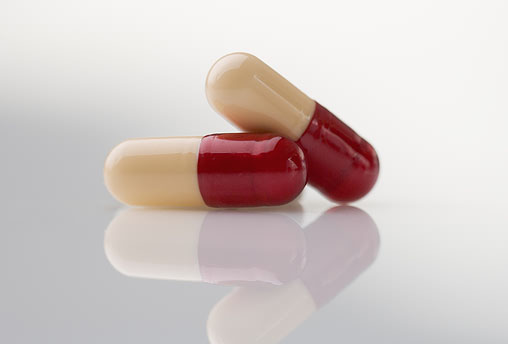Patient Workshop
Is Almost Here! |  |
Sunday, February 20, 2011
Hilton Dallas-Fort Worth Lakes Executive Conference Center
Click on this link for details Workshop registration and lunch reservations ($20) may be made at the door.
|
CIR Organization
CIR is an IRS-recognized
501(c)3 non-profit, charitable organization. Donations allow us to fulfill our mission and every gift is appreciated. Donate Online Here | |
| Our Library |
Access to our extensive, easy-to-read Library of Information (see this sample page)is available to patients, without enrollment in our counseling program.  Interested patients should send a request, along with their doctor's name and fax number (in the US or Canada) or email address, to info@chronicillnessrecovery.org Your doctor will be notified that you have access to this information. Click here for a list of articles available in our Library of Information and Physicians' Reference Library.
|
|
Survey
Volunteers are needed for the control group of our clinical study.
If you have a diagnosis of autoimmune or inflammatory disease or are chronically ill, but are not being treated with Inflammation Therapy (e.g., Marshall Protocol, Stillpoint Protocol) and would like to participate in this project, please
contact us via email.
| | | |
|
Quotable Quotes
"Very glad to be on this site for the support and help. Glad my doctor recommended it!!"
~ Haeleus
"You and your organization are absolutely revolutionary and I am so happy to be a part of something that has the potential for helping so many people."
~ Will Woodward
| | | |
|
Therapy Tip
Inflammation Therapy (IT) antibiotics often have a palliative, anti-inflammatory effect (i.e., modulate the immune system response).
Therefore, discontinuing IT antibiotics (rather than adjusting the dose) when herxing (immunopathology) becomes intolerable, often results in an increase in symptoms, either immediately or eventually.
But IT antibiotics are not purely palliative.
They serve a very important purpose by weakening the L-form bacteria, to assist the immune system in eliminating these persistent pathogens.
IT antibiotics should be used in all the recommended combinations, with the dosage, schedule and pace of use tailored to individual patient response, during the course of treatment.
| | |
| Contact Information | CIR email address
Phone CIR toll-free
in the US and Canada
1-888-846-2474
Are you a Skype User?
Look for
Chronic.Illness.Recovery
|
|
|
 |
|
Greetings!
The first annual CIR Patient Workshop is just around the corner! We're excited to gather with our Team members, expert speakers and attendees. Some are coming from great distances (e.g., Australia, Ireland, Mexico, Vermont) to take part in this unique opportunity to learn more about Inflammation Therapy and to share their IT experiences with others.
It's not too late to make plans to attend. The special Hilton room rate has expired but there are many other hotels in the immediate area (and fast food restaurants) if you're looking for a bargain. You can make a last-minute decision to attend because $20 lunch reservations and registration will be taken at the door on the 20th.
We hope you're able to join us, but we understand that many who are interested are still too ill to travel. Rest assured, we plan to hold annual workshops for patients (and seminars for medical practitioners) so you will have another chance if this year doesn't work out for you.
Thanks to all of you who've introduced your doctor to CIR's services. With your help, we will continue to fulfill our mission of helping physicians become confident medical practitioners of Inflammation Therapy, thus making IT available to many more patients who need it.
Best regards,
 
|
| About Inflammation Therapy | |
We're often asked if Inflammation Therapy is the same as the Marshall Protocol (MP).
Inflammation Therapy (IT) is based on some of  the same scientific theories as the MP and uses many of the same medications. However, clinicians have made so many modifications to improve this treatment that a new name was needed. Medical practitioners with years of hands-on IT management experience have learned to tailor therapy based on their assessment of each patient's unique medical profile and the latest understanding of the underlying metabolic processes. the same scientific theories as the MP and uses many of the same medications. However, clinicians have made so many modifications to improve this treatment that a new name was needed. Medical practitioners with years of hands-on IT management experience have learned to tailor therapy based on their assessment of each patient's unique medical profile and the latest understanding of the underlying metabolic processes.
Simply put, IT is an updated and improved version of the MP based upon not only the newest science, but upon real world clinical experience. Following is a brief summary of a few of the modifications that have been developed to increase the ease of use and efficacy of this novel therapy.
One of the most significant updates is based on our new understanding of the diverse metabolic actions of Benicar (Olmetec, Olmecip) on the VDR, the Nuclear Factor-kappa B pathway and other cellular receptors. This has resulted in the realization that, for many patients, a lower dose of Benicar provides adequate VDR activation; thus making high doses to achieve a palliative, anti-inflammatory effect unnecessary.
IT recommends avoiding vitamin D ingestion - not because D2 or D3 are always immunosuppressive (there is insufficient scientific evidence to make this claim) - but because lowering 25-D levels to a reasonable level can help lower high 1,25-D levels that reflect too much systemic inflammation. Because 25-D has a normal role to play in human physiology, patients are not told to reduce 25-D to unmeasurable levels, but only to keep 25-D low enough to control elevations in 1,25-D.
IT patients are cautioned that avoiding sun exposure on skin is a necessary strategy, at least at the beginning of therapy, to limit production of 1,25-D and achieve symptomatic improvement.
IT still relies on low dosed, pulsed antibiotics to  weaken the L-form bacteria and recommends that patients use all antibiotic combinations, at their own pace with dosage and schedule tailored to their response to therapy, to increase the likelihood of eliminating most of the offending bacteria. IT recognizes that antibiotics are a vital tool to modify the immune system response for essentially all patients. IT also allows the use of selected anti-inflammatory and palliative supplements, as needed, to help control the Herxheimer reactions. weaken the L-form bacteria and recommends that patients use all antibiotic combinations, at their own pace with dosage and schedule tailored to their response to therapy, to increase the likelihood of eliminating most of the offending bacteria. IT recognizes that antibiotics are a vital tool to modify the immune system response for essentially all patients. IT also allows the use of selected anti-inflammatory and palliative supplements, as needed, to help control the Herxheimer reactions.
Patients who require standard medications (e.g., to control seizures, pain, hypertension, etc.) are encouraged to continue them. Nutritional supplementation is allowed, based on individual patient need.
Lab work is recommended at regular intervals to monitor critical organ function (e.g., kidneys, liver, thyroid, bone marrow) because dangerous lab parameters are not a normal part of recovery. IT clinicians take critical lab values very seriously and intervene promptly if these markers of health stray too far from safe parameters.
Appropriate adjunct medications may be recommended for patients with co-infections. IT clinicians follow, with interest, patients who insist on testing supplements, medications or adjunct therapies which have not previously been used on IT.
|
Scientific Articles
| A paper titled Olmesartan, a novel AT1 antagonist, suppresses cytotoxic myocardial injury in autoimmune heart failure, published in the American Journal of Physiology - Heart, suggests that more olmesartan may not always be better for organ protection, stating: "The reason that middle or high doses of olmesartan were not as effective for cardio-protection is unknown."
A new study, Angiotensin II Receptor Blockers and Risk of Cancer in Patients With Systemic Hypertension, reported in the current issue of the American Journal of Cardiology, states, "In conclusion, long-term use of ARBs is associated with a lower incidence of cancer occurrence, thereby suggesting that ARBs may prevent cancer development."
|
| About Chronic Illness Recovery | |
FAQs about CIR's Recovery with Inflammation Therapy Survey Study
What is RITSS?
The Recovery with Inflammation Therapy Survey Study (RITSS) is a prospective, on-going, clinical study conducted via an online survey to collect data about the efficacy of Inflammation Therapy (IT).
Who designed the study? The CIR Health Team, which includes medical professionals who are familiar with Inflammation Therapy, developed the study and the detailed questionnaire designed to elicit clear subjective and objective answers. Criteria were defined to measure symptom severity for 63 different chronic illnesses and to track 30 measurable lab values. Subjects will include patients on inflammation therapy who meet certain criteria and a control group of subjects with chronic illnesses who are not on IT.
How does the data collection process work? Participants will be sent an email message with a link to an initial online survey to collect static background information. Then each week they will receive an email message with a link to a shorter survey that contains objective and subjective questions about their current health status. Patients may complete the surveys as often as they would like; the system has built-in email reminders if the survey is not completed within a couple of days. Study subjects may discontinue participation at any time by clicking the 'unsubscribe' link in the email message.
How will the study data be used? Survey data will be kept anonymous and stored in a secure database which may be accessed by qualified researchers. Pertinent statistics will be compiled and graphed as soon as valid statistical samples are collected. The results, positive and negative, will be made publicly available on our website. Defined study outcomes include comparison of lab work, imaging, PFTs and symptom resolution. Information collected from subjects who are lost to follow-up through exiting the study will not be included in the statistical analysis.
Why should I participate? CIR has had many requests for statistics regarding the effectiveness of inflammation therapy. The biochemistry of the bacterial pathogenesis of Th1/Th17 inflammation and the novel nature of IT make it impossible to study this treatment using the reputed 'gold standard' of a randomized, placebo-controlled, blinded trial. However, a survey can be used to obtain valid data regarding treatment efficacy.
This is your chance, whether you are using IT or not, to contribute to an ongoing data collection and to help meet the need for statistical evidence. We believe this project will ultimately advance the use of this treatment that is reported to be effective by many anecdotal reports.
How can I join the study? Subjects may join the study cohort at any time.  Patients enrolled in the CIR counseling program will receive an email invitation to join the study, but their participation is optional. Patients, anywhere in the world, who are on Inflammation Therapy and would like to participate in the study, or those who would like to help by joining the control group of patients who are not on inflammation therapy, should write to us by email. Patients enrolled in the CIR counseling program will receive an email invitation to join the study, but their participation is optional. Patients, anywhere in the world, who are on Inflammation Therapy and would like to participate in the study, or those who would like to help by joining the control group of patients who are not on inflammation therapy, should write to us by email.
What if I can't complete a survey each week? We realize that many won't be able to complete the survey weekly for a variety of reasons. It's fine if you fill it out whenever you are able to.
I've been on IT a long time. Should I still participate in the survey? Yes, your data is important and the survey is designed to capture information about your recovery so far. The date you started treatment will be taken into account when the data is compiled.
Who is paying for this project? Funding for this important project comes entirely from donations to Chronic Illness Recovery. Anyone who would like to help defray the costs of this ambitious undertaking may make a financial contribution by clicking on this link.
|
|
|
|
|